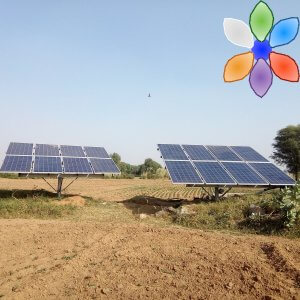Transforming Women's Health with Solar in Zimbabwe
By
Shanna Edberg
June 7, 2017
 Oxfam International’s Rural Sustainable Energy Development Project has equipped five health clinics in rural Zimbabwe with solar power, providing not just light but also reliable vaccine refrigeration and water pumps. Patients and expectant mothers no longer have to provide their own lighting when visiting the clinics, and clinic staff no longer have to use candles or cell phone lights to perform procedures at night. This has increased the vaccination rate, reduced incidences of diarrhea, and has resulted in greater numbers of women giving birth in the clinics rather than on the roadside or at home. The communities have also begun Community Energy Funds in order to expand the use of solar power and pay for future maintenance costs.
Oxfam International’s Rural Sustainable Energy Development Project has equipped five health clinics in rural Zimbabwe with solar power, providing not just light but also reliable vaccine refrigeration and water pumps. Patients and expectant mothers no longer have to provide their own lighting when visiting the clinics, and clinic staff no longer have to use candles or cell phone lights to perform procedures at night. This has increased the vaccination rate, reduced incidences of diarrhea, and has resulted in greater numbers of women giving birth in the clinics rather than on the roadside or at home. The communities have also begun Community Energy Funds in order to expand the use of solar power and pay for future maintenance costs.
Climate Protection: Prevents carbon emissions Energy & Mobility: Saves energy Food & Water: Provides clean water Jobs & Assets: Saves patients’ money Health, Well-Being, & Safety: Improves the health of mothers; increases the effectiveness of health professionals; increases the vaccination rate; reduces incidence of disease Connection: Gives the communities a tool for planning and providing for future energy needs
This post is part of a series on examples of multisolving, or climate-smart policies that simultaneously work to mitigate climate change while providing co-benefits such as the ones described above. The multiple benefits analysis was done using the FLOWER framework.

 Oxfam International’s Rural Sustainable Energy Development Project has
Oxfam International’s Rural Sustainable Energy Development Project has